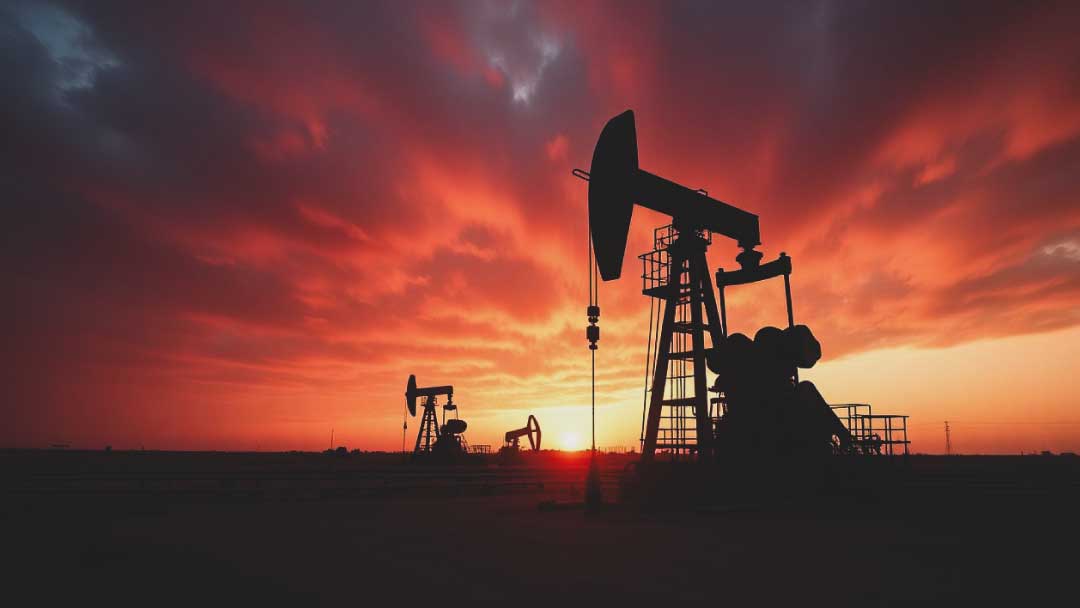Risk Mitigation Strategies for Global Oil & Gas Operations
Risk Mitigation Strategies for Global Oil & Gas Operations
In the high-stakes world of international energy operations, uncertainty is often the only constant.
Picture this: a newly established oil field in a politically volatile region faces unexpected protests, putting both personnel and infrastructure at risk. At the same time, a cyberattack disrupts critical systems at an offshore rig, delaying production and raising operational costs. Scenarios like these are not hypothetical… they’re stark reminders of the complex security challenges that companies in the oil and gas sector encounter daily.
Operating across borders brings unparalleled opportunities for growth but also exposes organizations to a unique set of risks. From political unrest and environmental hazards to theft, sabotage, and emerging cyber threats, the global nature of energy production requires constant vigilance and strategic planning.
For decision-makers in this industry, balancing profitability and safety is no small feat.
At GPI Defense, we understand that managing these risks is not just about responding to incidents as they arise – it’s about anticipating them, preparing for them, and ensuring your teams and assets are protected no matter the circumstances.
In this article, we’ll share proven strategies that help mitigate the multifaceted risks associated with global energy operations, empowering your organization to maintain safety, continuity, and peace of mind.

Understanding the Risks
Operating globally, particularly in the oil and gas industry, often means facing a wide array of security threats. These risks not only jeopardize operations but can also lead to significant financial losses and long-term reputational damage if left unaddressed.
Understanding the nature and scope of these challenges is the first step toward effective mitigation.
Political and Social Instability
Energy production frequently occurs in regions where political tensions or social unrest are common.
For example, the U.S. Department of State’s Travel Advisories provide valuable insights into regions where instability could impact business operations.
Staying informed about local geopolitical climates and maintaining contingency plans can help mitigate such disruptions.
Environmental Hazards
Remote or offshore facilities are often at the mercy of nature. Severe weather conditions like hurricanes or earthquakes can cause significant damage to infrastructure and delay production.
For resources on disaster preparedness, the Federal Emergency Management Agency’s (FEMA) Preparedness Guides offer practical advice tailored to various industries.
Cybersecurity Threats
The digital transformation in the energy industry has brought efficiencies but also vulnerabilities. Cyberattacks targeting operational technology (OT) and IT systems can disrupt production and compromise sensitive data.
The U.S. Cybersecurity and Infrastructure Security Agency (CISA) provides comprehensive resources on cyber threats specific to critical infrastructure sectors like energy.
Developing a Risk Mitigation Framework
Addressing the complex challenges of global energy operations begins with a clear, well-structured risk mitigation framework. This framework should encompass proactive strategies tailored to the specific needs of your organization and the regions in which you operate.
Scenario Planning
Preparing for the unexpected requires anticipating a wide range of “what if” scenarios. The International Organization for Standardization (ISO) outlines risk management standards in its ISO 31000 guidelines, which provide a framework for assessing and mitigating risks effectively.
Stakeholder Collaboration
Building strong partnerships with local stakeholders is vital. For example, the International Association of Oil & Gas Producers (IOGP) offers guidance on fostering local partnerships to enhance security and ensure community engagement.
Such collaboration not only strengthens security measures but also builds trust and goodwill in challenging regions.
Implementing Effective Security Solutions
Onsite Security Teams
Having a reliable onsite security presence is crucial for safeguarding personnel and infrastructure. Trained security professionals provide immediate responses to incidents and serve as a deterrent to potential threats.
In a politically volatile region of North Africa, an oil production facility successfully averted sabotage attempts by deploying a team of bilingual security professionals trained to navigate local dynamics.
Technology Integration
Advanced security technologies amplify human efforts, providing real-time insights and streamlined operations. Key technologies include:
- Surveillance Systems: High-definition cameras and drones for monitoring large, remote areas.
- Access Control: Biometric scanners and smart locks to ensure only authorized personnel can enter sensitive areas.
- Tracking Systems: GPS and satellite monitoring to secure cargo and equipment in transit.
The Energy Information Administration (EIA) frequently publishes data and insights on technological trends in the energy sector that can inform strategic investments in security technologies.
Training and Preparedness
Comprehensive training programs empower employees to act confidently and effectively in crisis situations.
Organizations like the Occupational Safety and Health Administration (OSHA) offer training materials and guidelines relevant to safety and emergency response in industrial settings.
The Long-Term Value of Partnering with Experts
Reliability and Peace of Mind
A trusted security partner provides the assurance that risks are being actively monitored and mitigated, allowing leadership to focus on core business objectives.
Cost-Effectiveness and ROI
Preventing a single incident – whether a cyber breach, theft, or physical attack – can save millions in damages, lost productivity, and legal liabilities.
Custom Solutions for Dynamic Operations
Every energy operation is unique, and security solutions should be tailored accordingly.
Checklist: What to Look for in a Security Partner
- A service guarantee that ensures accountability.
- Proven expertise in the oil and gas industry.
- Global reach with local knowledge.
- Access to advanced technology and resources.
- Commitment to proactive and preventive security measures.
- Transparent communication and long-term partnership focus.
Securing the Future of Global Oil & Gas Operations
The oil and gas industry’s global reach brings unparalleled opportunities but also a complex array of risks.
Proactive risk mitigation strategies – rooted in thorough assessments, scenario planning, and robust security measures – are essential for ensuring operational continuity and safety.
At GPI Defense, we are committed to helping energy companies navigate these challenges with confidence.
By prioritizing security, you not only protect your assets but also foster an environment where growth and innovation can thrive.
“At GPI Defense, we protect more than just property… we actually safeguard your business from financial risks, theft, and legal liabilities.”